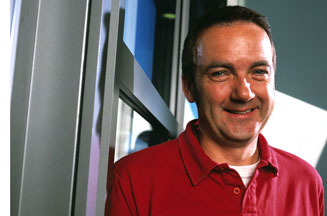Putting his geniality and collegiate approach to one side, even his tenure as BBC director of communications, marketing and audiences, where he achieved some acclaim in resurrecting the digital terrestrial television format following the collapse of ITV Digital, was not enough to ever rid him of the unwelcome moniker ‘the margarine man' that marked him as an outsider from the outset.
Instead, his departure is marked with recriminations and accusations from professional TV-types. He is now being made out to be the fall guy for failing to secure Channel 4's long-term future or get the guarantees from the government that would guarantee its future funding model.
Certainly mistakes are evident - of which his appearance on Channel 4 News in his trademark casual clothing while attempting to defend the ugly incident involving Jade Goody and Shilpa Shetty was the most publicly high-profile, but this was characteristic of a certain naivety rather than malice that occasionally reared its head during his time in charge.
A misstep that had more serious repercussions for the Channel 4 business was when, and against the apparent wishes of the majority of Channel 4's senior management, he pressed ahead with plans for the launch of the digital music platform 4Radio at a time when everyone else was cutting their losses and getting out of it quick.
When commonsense finally prevailed and the plug was pulled at the eleventh hour, the broadcaster had already spent in the order of £10m and assembled a cast of people to staff 4Radio; the fact that this coincided with Duncan telling anyone who'd listen about how hard-up C4 would be in the future suggests that there was a collective lack of judgment from its board.
And then there were the attempts to try and find a suitable suitor - an airtime sales merger with Sky followed reports of a merger with BBC Worldwide as well as the possibility of merging with Five. The first option seems the most likely although there are those who think that there was a lack of a clear strategic thinking.
In fairness to Duncan, the failure to find a suitable bedfellow is as much the fault of the imminently departing Luke Johnson and also depends very much on what recommendations that Competition Commission comes up with for ‘son of CRR'. It's also an issue that is affecting all other commercial broadcasters.
Never let it be forgotten that amid all this, there were some notable successes - not least in becoming the first terrestrial broadcaster to launch a time-shifted channel and through Duncan's commitment to new talent. However the failure to secure any concessions from the government in its Digital Britain report, as well as a lack of support from other members of the Channel 4 board, proved to be the final nail in his coffin.


